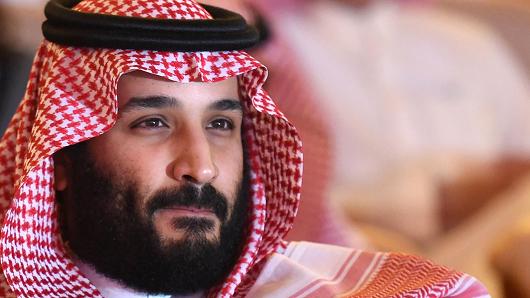
FAYEZ NURELDINE | AFP | Getty Images
Saudi Crown Prince Mohammed bin Salman attends the Future Investment Initiative (FII) conference in Riyadh, on October 24, 2017.
Saudi Arabia’s Crown Prince Mohammed bin Salman is in Washington D.C. Tuesday, and will likely talk to President Donald Trump about something the Saudis have wanted for a long time: a nuclear energy program.
The Saudi pursuit of nuclear energy has long made many observers nervous, but it grabbed headlines last weekend after Bin Salman told CBS News that if Iran were to build a nuclear bomb, so would Saudi Arabia.
“This is the Saudis saying openly what we have known for a long time,” said Ryan Turner, senior risk analyst at consultancy PGI Group. “Saudi Arabia’s desire for a civilian nuclear program cannot be separated from the rivalry with Iran.”
For around five years now, the Saudis have been in informal negotiations with the U.S. and other countries that could provide it with a commercial nuclear energy partnership, with the stated aim of diversifying its energy base. And in February, the kingdom recruited American lobbying firm Pillsbury Winthrop Shaw Pittman as an advisor on the legal issues surrounding developing a commercial nuclear program.
The catch? Saudi Arabia is refusing to accept a deal that would forbid it from enriching uranium and reprocessing plutonium, the mechanisms necessary not for nuclear energy but for developing a weapon.
And the U.S. may not be able to afford to walk away: If it does, warns Turner, “they will pursue alternative suppliers such as China or Russia because they feel the program is needed in part to keep pace with Iran.”
Opposition from U.S. lawmakers on both sides of the political aisle has historically impeded the kingdom’s aims — Section 123 of the U.S. Atomic Energy Act of 1954 mandates that Congress review any sharing of nuclear technology with a foreign country. Now, however, the Saudis have more cause for optimism: the Trump administration has signaled greater willingness to strike a deal than its predecessors.
 EU News Digest Latest News & Updates
EU News Digest Latest News & Updates



